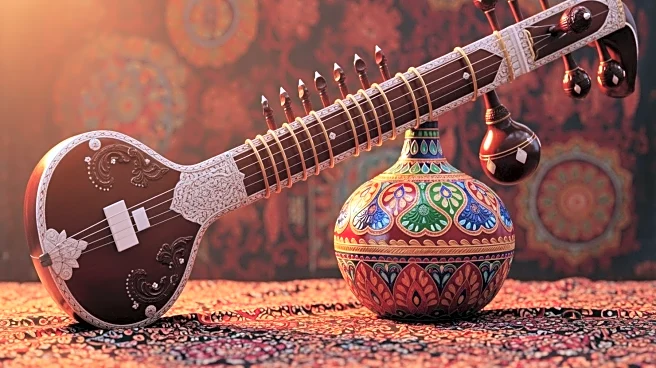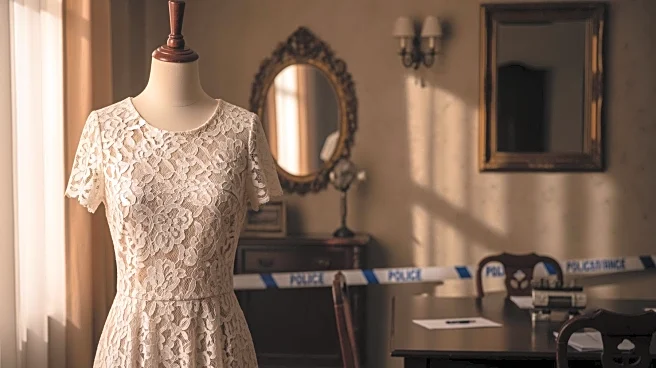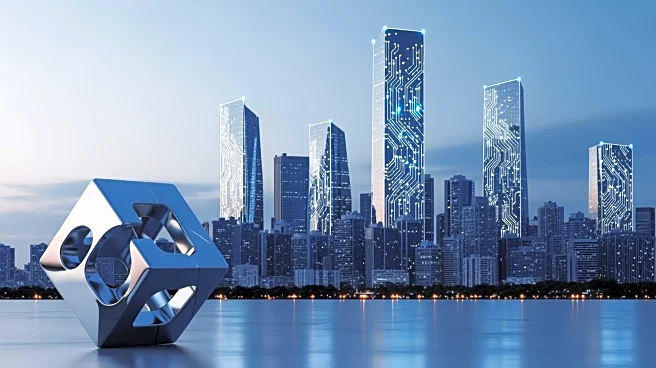What's Happening?
The Bollywood classic 'Dilwale Dulhania Le Jayenge' (DDLJ) marks its 30th anniversary, continuing to captivate audiences at Mumbai's Maratha Mandir theater. Released in 1995, the film tells the story of Raj Malhotra and Simran Singh, two young Indians
raised in London who fall in love during a European trip. The film's narrative, which involves Raj winning over Simran's conservative father, resonated deeply with audiences, making it the second-highest-grossing film of its decade. The film's enduring appeal is evident as it continues to draw crowds, including young couples and tourists, to its daily screenings.
Why It's Important?
DDLJ's success is significant as it reflects a pivotal moment in Indian cinema and culture. The film's narrative mirrored India's journey in the 1990s, a time of economic liberalization and cultural awakening. It presented a new kind of Bollywood film that resonated with both domestic and international audiences, particularly the Indian diaspora. The film's portrayal of Indians abroad and its focus on cultural conflicts helped redefine Bollywood narratives, influencing future films and solidifying the on-screen pairing of Shah Rukh Khan and Kajol as iconic. DDLJ's impact extends beyond cinema, shaping cultural perceptions and romantic ideals for generations.
What's Next?
As DDLJ continues to be celebrated, its legacy is likely to influence future Bollywood productions. The film's themes of cultural identity and familial approval remain relevant, potentially inspiring new narratives that address contemporary issues. The ongoing popularity of DDLJ may also encourage filmmakers to explore similar cross-cultural stories, appealing to both Indian and global audiences. Additionally, the film's anniversary could lead to special events or retrospectives, further cementing its status as a cultural touchstone.
Beyond the Headlines
DDLJ's impact goes beyond its box office success, highlighting shifts in gender roles and cultural identity. While the film is celebrated for its romantic narrative, some aspects, such as its gender politics, are viewed as outdated by modern standards. This reflects broader societal changes and ongoing discussions about representation in media. The film's enduring popularity also underscores the power of cinema to shape cultural narratives and influence societal values over time.

















